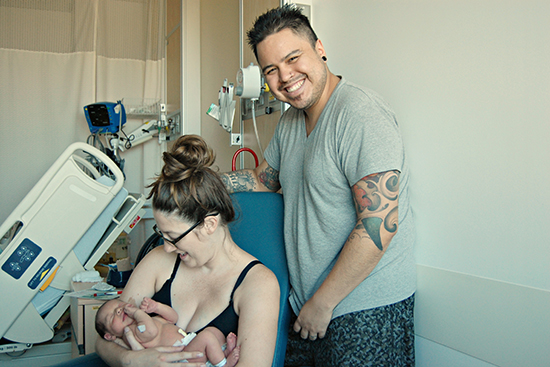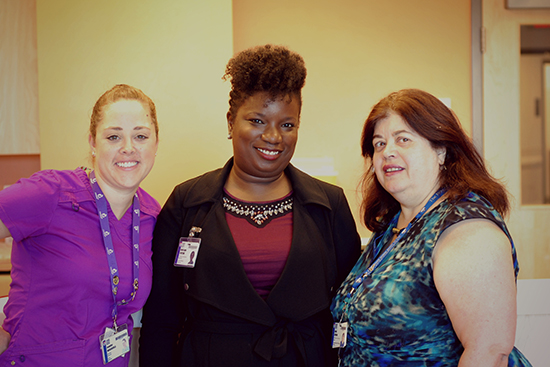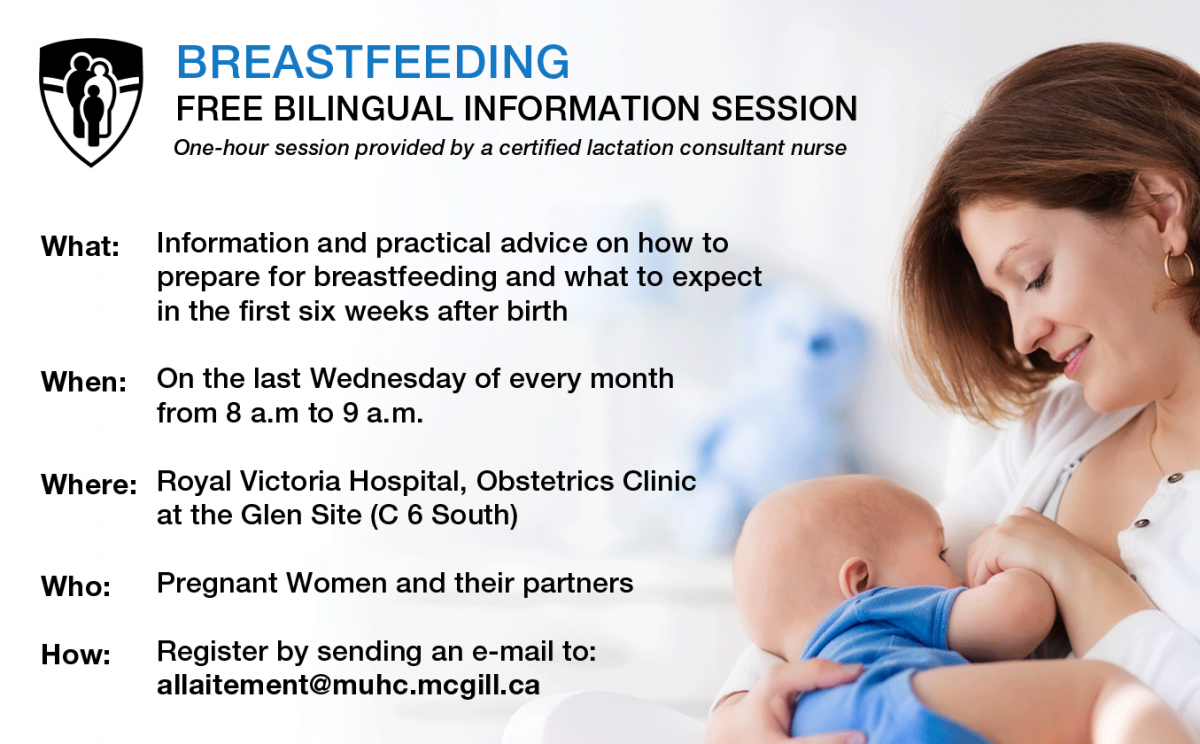MUHC goes the extra mile to make breastfeeding possible for all moms
At 37 weeks gestation, Chelsea Lichtenberger gave birth to her daughter Lola at the McGill University Health Centre (MUHC). But unlike most births, Chelsea’s was considered high-risk due to her Marfan syndrome—a hereditary disease that can lead to cardiovascular defects. In this case, the wall of Chelsea’s major heart artery was at risk of tearing so right after giving birth she was rushed to the Intensive Care Unit (ICU). Unfortunately, mom and baby would have to be separated for the hours post-birth that are most critical to introduce breastfeeding.
“As a complex healthcare centre, the MUHC Birthing Centre sees many high-risk patients,” says Ruth-Lynn Fortuné, assistant nurse manager in the MUHC Maternity Unit. “We often have mothers who need to be transferred to the ICU or other departments for extra specialized monitoring.”

But at the MUHC, if a mom chooses to breastfeed no obstacle is too high for the Maternity Unit team. To maximize maternal and infant health benefits, families are supported to meet their breastfeeding goals and are encouraged to breastfeed exclusively for six months. “When a situation that separates the mother and her infant arises, one of our nurses will go see the mother to help her initiate breastfeeding. Everyone does their best to ensure moms and babies are off to a good start on their breastfeeding journey.”
For Lola and Chelsea, they did reunite in the ICU, where mom first breastfeed her daughter.
“While Chelsea was in the ICU, her condition was stable but needed to be closely monitored. We have observed that high-risk mothers who are given the opportunity to breastfeed appreciate all the efforts that are made to minimize separation. Dads take on the caretaker role ensuring both mom and baby are safe,” says Ruth-Lynn.
According to Chelsea, being able to breastfeed in the ICU was a great experience. “As soon as Lola got there with me, everything started to stabilize and we were eventually able to go back to the Maternity Unit.”
Empowering women to breastfeed

“We encourage mothers to believe they have the competence to breastfeed and we make sure they have the support in place to succeed,” says Luisa Ciofani, clinical administrative manager and certified lactation consultant of the Women’s Health Mission.
Ruth-Lynn says that the one piece of advice she would give to mothers who wish to breastfeed is to trust themselves. “There is no right way to breastfeed. Each mother’s way of doing it is the right one for her - she is the one who knows her baby the best.”
In the Maternity Unit, the whole team works to impart this feeling of trusting oneself to mothers. “Breastfeeding takes days or weeks to establish so we make sure to give parents as many resources and as much information as we can during their stay,” says Ruth-Lynn. “And if we help them develop confidence in their ability to breastfeed, they are on the right path to face difficulties they might encounter at home.”

The MUHC also offers breastfeeding information sessions to MUHC families (see ad above). In this case, mothers are encouraged to bring someone who will be instrumental in their breastfeeding journey. “It might be their partner, their mother, their sister,” says Luisa. “It should be someone they can turn to for help, who also heard the same messages.”
For Chelsea, she is so thankful for the lengths the Maternity team went to ensure she was able to breastfeed her daughter. “It was so important for me that I would be able to breastfeed, and they made it happen.”
Providing the best care for our high-risk moms and premie babies
High-risk pregnancies have a higher chance of resulting in a premature birth. While very premature babies are transferred to the Neonatal Intensive Care Units (NICU), preterm infants born between 34-36.6 weeks gestation perform better when at the bedside with their mother, but they still need a lot of care.
They are more at risk for:
- jaundice
- low blood sugar
- respiratory issues
They particularly need help breastfeeding because of their poor sucking and swallowing reflexes, and weak back and jaw muscles. They can even fool us into thinking they are breastfeeding when they actually aren't!
The guidelines we work with and implement at the MUHC emphasize skin to skin, careful monitoring, and supplementation with expressed breast milk. Teaching parents about their newborn and empowering them to recognize cues to be able to make care decisions that will make the transition to the community successful is also key.
Source: Jennifer Marandola, Nurse at the Maternity Unit, MUHC.
